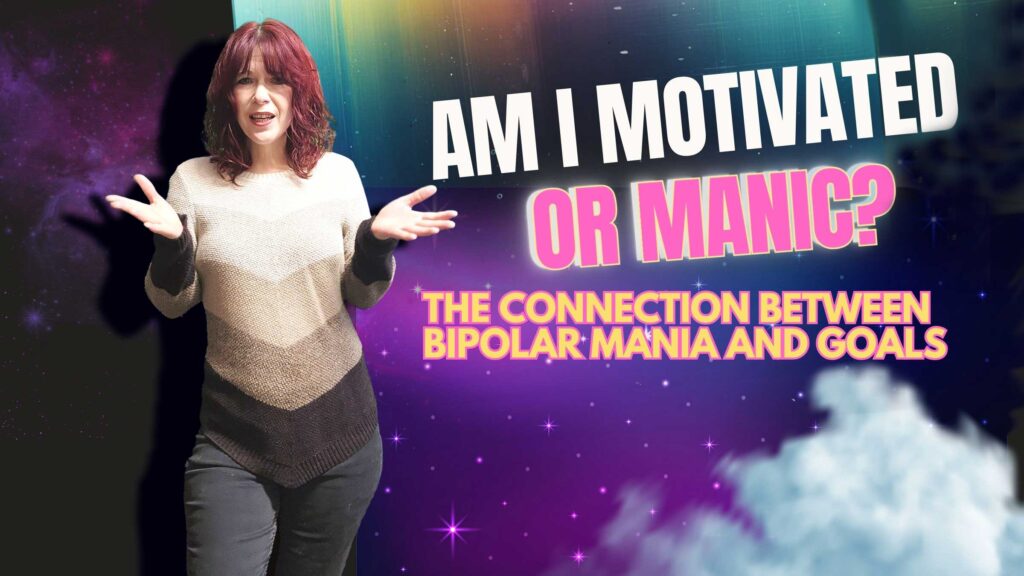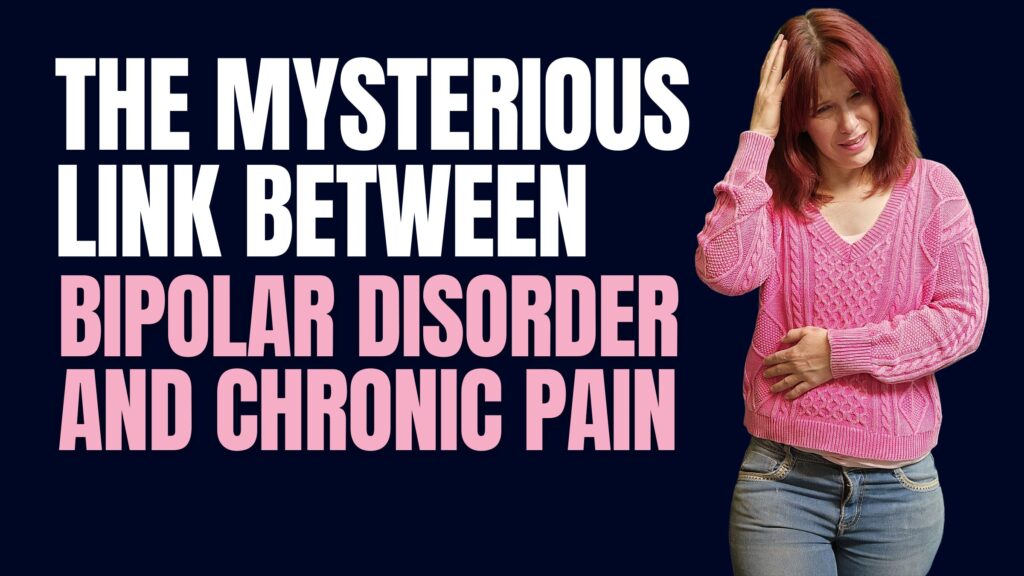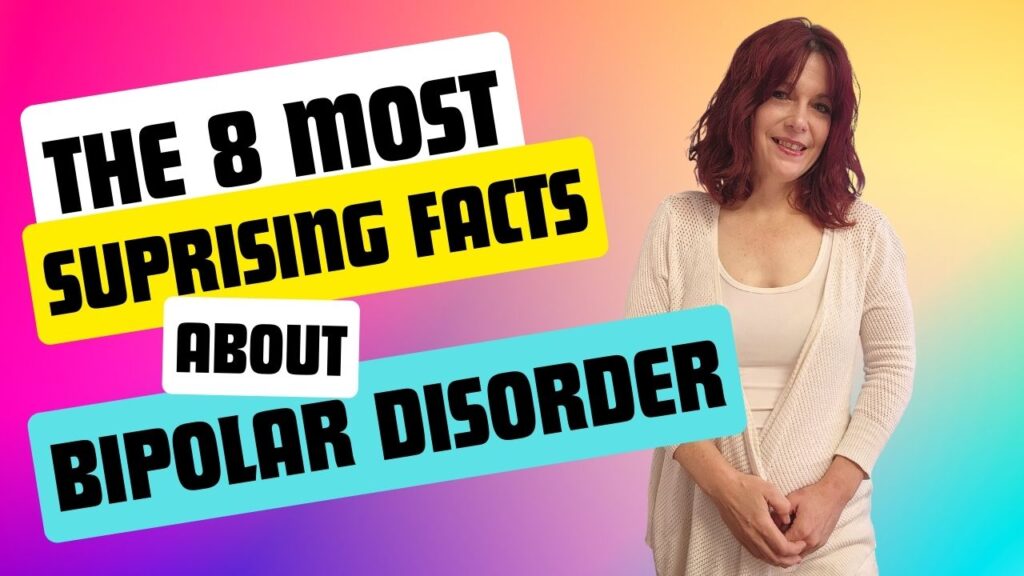Learn the Science behind Why you Talk So Much and How to Stop Doing it
Do you want to know how to stop talking so much? I’ve spent my entire life being a literal “Chatty Patty.” In fact, I think if you looked it up in the dictionary, you might find my picture. Even though people think I just love talking or hearing myself talk, in reality, it drains me, embarrasses me, and makes me feel bad about myself.
People have a lot of misconceptions about why people talk so much and why we can’t just be like them. This is what led me to start researching the subject of compulsive talking.
Do You Want to Know How to Stop Talking So Much?
If you find yourself struggling to keep your big mouth shut, it may not be all your fault. People with bipolar disorder and ADHD often struggle with excessive talking and interrupting. Unfortunately, talking too much can affect our relationships, our careers, and our mental health.
If you want to learn how to stop talking so much and are sincerely willing to put in the work, I hope this information will help you. If you’ve been searching for advice on how to stop talking so much, you have probably discovered that there really aren’t any effective tips out there. There’s a ton of advice on how to avoid over-talkers and speculation (from people who don’t get us) on why we talk so much, but there hasn’t been much research on compulsive talking. And, there’s even less information on how to stop doing it.
To make matters worse, most of the information written about overtalking is not written from the perspective of an overtalker. And, most of the tips were also not written for people who have bipolar disorder or ADHD, the ones who struggle with this the most.
There are physiological reasons why we talk so much, which makes stopping this habit much harder for us than other types of over-talkers. This is why I have put so much research into this blog post and YouTube video, and why I think you will find the information fascinating and helpful. So let’s get started by talking about why people think we talk so much, and why they are wrong.
Why People Think We Talk So Much and Why They Are Wrong
People with bipolar disorder and ADHD overtalk for various reasons. Unfortunately, there are a lot of misconceptions about why we talk so much. Some of the most common explanations for why we talk so much include:
- We’re overly excited about a topic
- We’re know-it-alls
- We lack self-awareness
- We lack boundaries
- We need to be the center of attention
- We like to dominate the conversation
- We’re narcissists
- We don’t listen
- We have anxiety
Many of these assumptions are completely untrue for most people with Bipolar Disorder and ADHD and are extremely hurtful.
If you talk a lot, I understand. I don’t believe that you talk excessively intentionally or talk a lot to make others uncomfortable. More than likely, you’ve tried to stop talking so much. But, the more you try to stop talking, the more you talk.
There is a reason why we struggle so much with excessive talking. Our brains are wired differently than others. I’ll get into that shortly. I think you’ll find the science behind why we overtalk intriguing. But, first, let me explain how being a chatterbox affects us and why you should learn how to stop talking so much.
How Talking Too Much Negatively Impacts Our Lives
According to Dan Lyons, author of STFU: The Power of Keeping Your Mouth Shut in an Endlessly Noisy World, talking too much can harm our professional lives and our personal lives. If you’ve ever talked yourself out of a job, a promotion, or a sale, you know what he’s talking about.
People who talk less often have better and happier lives. They have more control over their conversations, do better in sales, are better communicators, and have more meaningful and successful relationships.
Dan Lyons discusses how not being able to STFU can negatively affect every aspect of your life from work, to your relationships, to how you parent. I found his insight empowering and his tips useful and practical. Quieter, calmer, and more concise communication is a powerful life skill that can improve every area of your life.
Over-talking can increase your anxiety, depression, and feelings of insecurity, while also negatively impacting how people perceive you. It may lead others to believe you are narcissistic. Although the research contradicts this, this myth persists. According to a study by researchers at the University of Arizona, the commonly held assumption that people who talk about themselves a lot using “I”, “me”, and “my” pronouns are narcissistic is simply not true. Instead, there is likely a physiological or psychological explanation for their over-talking, such as ADHD, anxiety, or depression.
If you are an over-talker, you may be painfully aware of the negative implications of how much you talk. There are countless articles on how to avoid us, how to get rid of us, or how to get us to STFU. But, there is practically no information for those of us who struggle with compulsive talking on how to stop doing it!
This may be the reason why you arrived here looking for information on how to stop talking so much.
You know you talk too much and you still can’t stop doing it!
Even though you know it is annoying. Even though you overshare and regret it. Even though you want to stop talking so much, you still keep on talking.
Why? Why do we keep talking even though we want to stop?
Don’t know when to stop talking?
This might surprise you, but researchers have found that most of us struggle with when to talk and when to shut up. Even if someone is an introvert they can struggle with overtalking. In fact, most of us have problems reading social cues which is why I find the tip to pay attention to social cues utterly useless. We don’t intuitively know when someone wants us to keep talking and when they want us to stop.
In an article published in the Proceedings of the National Academy of Sciences USA, behavioral scientists looked at two studies to evaluate whether or not most conversations end when the partners want them to. What they discovered was surprising. Most people literally don’t know when to STFU.
In two studies examining the length of conversations, researchers found that in 98 percent of cases, conversation partners disagreed on when the conversation should have ended. Interestingly, in about half of the conversations, both individuals wanted to talk less than they actually did. The key takeaway is that we often talk more or longer than we think we should and that we all may fail to accurately pick up on social cues
Adam Mastroianni, the lead author of the study, emphasized the importance of leaving a conversation when you’re ready to stop talking, as assuming what the other person wants is often inaccurate. He explained that when it comes to conversations, “It’s better to be left wanting more than less.”
Why We Just Can’t Stop Talking so Much
Dan Lyons’ excerpt published in Time led me to read his book, STFU: The Power of Keeping Your Mouth Shut. I thought it was a great read even though I agree with the critics that he had too many unnecessary political views in his book. Nonetheless, I thought his book provided great information, tips, and advice and I recommend that anyone who struggles with over-talking read it.
Lyons discussed fascinating research from communication biologist Michael Beatty. Beatty and his team found that people who talked too much had an imbalance in neuron activity between a portion of the left and right lobes of the prefrontal cortex. People who have more activity in the right lobe tend to talk more than people who have more activity in the left. According to this theory, the more you talk, the more activity is taking place on the right side of the prefrontal cortex.
Similarities in the brains of over-talkers and people with bipolar disorder and ADHD
It’s not surprising that people with bipolar disorder and ADHD also have imbalances in the prefrontal cortex. Scientists have been studying the brains of people with these conditions to gain a better understanding of how our brains function. MRI studies have revealed that both ADHD and bipolar disorder are linked to abnormalities in the prefrontal cortex, particularly in the right hemisphere. The right hemisphere plays a crucial role in regulating attention and emotions.
In one study focusing on bipolar disorder, MRI images of patients indicated abnormalities in the prefrontal cortex. Depressive symptoms were associated with left hemisphere abnormalities, while manic symptoms were associated with right hemisphere abnormalities. Another study found that individuals with bipolar 1 experienced a progressive decrease in gray matter in areas of the brain including the prefrontal cortex, which was strongly correlated with their manic episodes.
Similarly, MRI studies on individuals with ADHD have indicated that ADHD is connected to structural and functional issues in the right hemisphere of the prefrontal cortex.
Talking too much or too fast: Pressured Speech and Hyperverbal speech
Both people with bipolar disorder and ADHD struggle with talking a lot. Pressured speech is a symptom of bipolar disorder that occurs when someone is hypomanic or manic. Pressured speech is not quite the same thing as talking a lot. Someone with pressured speech will talk really fast, without taking pauses, and may be impossible to interrupt.
Hyperverbal speech is seen in people with ADHD. They may be excessively chatty or unable to stop talking. Think of a young child following you around the room with non-stop chatter and questions. This is what hyperverbal speech looks like.
Although the two words are used interchangeably, pressured speech is different in the speed and intensity of the speech and is linked to mania or hypomania. Structural or functional abnormalities in the right hemisphere of the prefrontal cortex may contribute to these symptoms.
Now that you know what causes us to talk so much, let’s talk about how you can train your brain to stop being so chatty.
I hope you will find my tips on how to stop talking so much to be practical and helpful. You will need to practice them regularly for them to be effective. They have worked for me, and will hopefully help you too. It will be a struggle because we are hard-wired for excessive talking. But, learning how to stop talking so much can reduce your anxiety, make you feel more self-confident, and help you to become a better communicator.
12 Effective Tips to Help You Stop Talking So Much
If you struggle with talking too much and want to change this behavior, it’s important to first focus on calming your mind. Trying to control your speech when your brain is overexcited will be challenging. Before you can work on talking less, it’s important to address any underlying symptoms or conditions that may be contributing to your excessive talking, such as hypomania or ADHD. Once you are in a good place mentally, you can begin practicing techniques to help reduce the urge to compulsively talk.
#1 Cut down on stimulants.
Stimulants like caffeine and cannabis revv us up and increase our dopamine levels. Although you may have heard that caffeine can have a calming effect on people with ADHD, this is mainly based on anecdotal evidence and not backed up by research. Caffeine tends to make ADHD symptoms worse and caffeine can trigger manic symptoms in bipolar people and may reduce the effectiveness of lithium.
Likewise, cannabis can overstimulate people with bipolar disorder. You might mistakenly believe that cannabis will help you chill out. If you have bipolar disorder the opposite is true. Cannabis can trigger or exacerbate manic symptoms. While there may be fewer risks for individuals with ADHD cannabis may also make ADHD symptoms worse.
#2 Improve your sleep routines
Establishing a regular sleep routine is essential for managing bipolar disorder. Sleep deprivation can contribute to manic episodes, and there is evidence suggesting that bipolar disorder may be linked to disruptions in our circadian rhythm. By prioritizing consistent and adequate sleep, we can maintain a calmer state of mind. The calmer we are, the less we ramble and chatter.
#3 Practice meditation
While it may not be a cure for over-talking, it can create a sense of inner silence and help quiet the internal noise that often goes along with excessive talking. People with bipolar disorder and others who talk a lot tend to have constant thoughts and conversations running through their minds. Meditation can teach us to be still and quiet, helping us to calm down and make the task of talking less a little easier.
#4 Exercise regularly
Much like rumination, over-talking can be a cognitive process we get stuck in. When we can’t stop talking, we might also be struggling with racing thoughts, or pressured or hyperverbal speech. One way to slow this down is to do some type of physical activity. This may not be possible in the middle of a conversation, but practicing self-care activities like exercising can lift your mood and calm down your brain so that you can manage your conversations better.
#5 Stimulate the left side of your brain
Have you ever noticed that your introverted friends spend more time doing activities like solving crossword puzzles or playing solitaire? These activities tap into the left hemisphere of our brains. As over-talkers, we tend to use our right hemisphere more. Spending time on left brain activities that require concentration like writing, reading a book, solving crossword puzzles, learning to code, or playing games like solitaire may stimulate and strengthen the left hemisphere of our brains. By strengthening the left side of your brain you may help to improve the imbalance in your brain.
#6 Get off Social Media
What does social media have to do with talking too much? More than you think.
We’ve all heard about dopamine. Dopamine is known as the pleasure chemical. It’s released when we do things that make us feel good like completing a goal, eating something we like, or posting on social media. The release of dopamine is linked to addictive behaviors like using tobacco or drugs.
Some researchers think that bipolar mania may be caused by the overreactive regulation of dopamine in our brains. Talking, like social media, releases dopamine and makes us feel good. It is a form of stimulation that can become addictive. To reduce the urge to talk all the time, it may be helpful to stop activities that stimulate dopamine and addictive behaviors, in order to calm down the dopamine feedback loop that drives us to talk so much.
Give yourself a break from constant talking. Whether it’s in person or online, taking a break from excessive communication can help you to quiet down. Plus, consciously practicing self-control and reducing your dependence on social media can help you gain control in other areas your life.
#7 Get comfortable with silence
People who talk too much are often uncomfortable with silence. When we’re in a room with others, if nobody’s talking, the silence will literally drive us crazy. We don’t like the way it feels when things are quiet, so we talk. Our aversion to silence is also evident in our tendency to fill quiet spaces with noise This is why many of us will turn on the television rather than sit in a quiet room even if we’re not watching or listening to it. In order to break free from our need for noise in stimulation, we need to get used to the sound of silence. Instead of filling empty spaces with noise, learn to sit with the silence.
# 8 Go on a “not talking diet”
In order to get better at not talking so much, we need to get more comfortable with empty spaces and pauses. When you have a conversation with someone, deliberately create opportunities for the other person to talk by giving them space to talk. Make a conscious effort to pause during discussions. This will not come naturally to an over-talker and will require a lot of practice.
Think about it as a “not talking diet”. Just like when you’re on a regular diet and constantly find yourself opening and closing the refrigerator because you’re craving something to eat, not talking can feel the same way. We start craving our talk time. So, take some time to cut back on unnecessary conversations by going on a “not talking diet”.
Treat your conversations like opening the refrigerator door — when you catch yourself starting to talk, pause and think about what you’re doing, and then close your mouth. With practice, you’ll become better at restraining your urge to talk.
# 9 Use timers and affirmations
To help me stop talking so much, I started using alarms on my phone paired with affirmations. I would set alarms on my phone to go off every thirty minutes, serving as a reminder for me to not talk so much in social settings. My goal was to go half an hour without initiating any conversations. If someone asked me a question, I would respond, but I made a conscious effort not to start any new conversations during these time blocks. Instead, I practiced being silent and actively listening to the other person.
I labeled my alarms with affirmations such as “You are silent,” “You are powerful,” and “You are self-controlled.” Sometimes, I would silently repeat these affirmations in my mind to help me stay focused and remind myself not to talk. Through consistent practice using these half-hour intervals, I gradually got better at controlling my urge to talk.
#10 Keep a digital journal
Journaling helps me to process my emotions and gives me a safe place to talk. I often talk as a way of thinking out loud. Even when I know the other person doesn’t need to hear my thoughts or that my thoughts are not relevant, interesting, or important to them, I will still often tell other people what I am thinking about. To give myself a space to do this, I keep a digital journal that is always available for me.
I keep a digital journal so that my journal is always available to me. Obviously, you can’t journal all the time, especially on the job. But, you can write little notes to yourself throughout the day. Journaling also helps me to track my progress toward my goals. I might record little notes for myself, like “today I did much better with not talking so much” or
“I kinda blew it today, but that’s okay. I am making progress”.
#11 Practice Mindful Communication
I try to practice mindfulness in every area of my life. Mindful communication is a practice that involves being fully present and aware during your conversations with others. It requires being conscious of your emotions and thoughts as you engage in discussions. When practicing mindful communication, you may pause and ask yourself questions. For example, “Why do I want to share this?” or “Is this important to the person I am talking to?” Or, “Can it wait?
One thing I have realized by practicing mindful communication is that I often am not thinking about the other person’s feelings when I talk. When I feel the need to share something, like a mundane detail about a project I am working on, I will have a conversation inside my head about whether or not to share this. I sometimes say to myself, “Patty nobody f-ing cares about that”.
Since I started actively practicing being a mindful communicator, I no longer just think about how I feel in the moment, but I also think about how my conversation might be making the other person feel.
# 12 Improve your listening skills
As over-talkers, we often trade listening for talking and rarely do this equally. A lot of talk-too-muchers will find friends that will let them go on and on. Sadly, we don’t always care if they are actually listening. This is why mindful communication has been so important in helping me change how I talk and how I listen. While being listened to may not be as important to us, it is important to others.
If you find that you often interrupt, talk too much, or don’t pay attention when others are talking, it may be beneficial to work on your active listening skills. There are many resources available on active listening, such as books, that can help you to become a better listener. The better you are at listening, the less you interrupt and talk.
Practice, forgive, repeat
Breaking the habit of talking too much can be challenging, as it is easier to start a habit than to break one. For many of us, silence can be uncomfortable and even drive us crazy. However, with time and effort, it is possible to make gradual improvements and learn to talk less. It is important to remember that changing a deeply ingrained habit takes time and patience.
If you find yourself slipping back into old patterns of talking too much, don’t be discouraged. Simply start over, practice these tips daily, and forgive yourself for any imperfections along the way. With persistence, you will eventually be able to stop talking so much.












